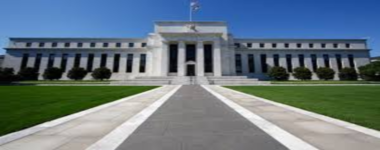Central banks are continuing to position themselves to weather the fallout from the coming shift in U.S. monetary policy, with Hungary, Nigeria and Russia’s last week citing the need to maintain tight policy in light of the risks they will face from higher U.S. interest rates.

The strong reaction of global financial markets to news last summer that the Fed was likely to start wrapping up five years of quantitative easing – an episode now known as “taper tantrum” – is still seared in the memory of policymakers who are eager to avoid a repeat.
With the Fed’s third round of asset purchases set to conclude in November and the first rate rise expected in mid-2015, emerging market central banks want to ensure that they can offer attractive rates of return that reflect their inflation rates and the risk of exchange rate depreciation.
Russia’s central bank, which last week surprised markets by raising its rate by 50 basis points, pointed to the growing likelihood of an acceleration in inflation from what it described as “negative trends,” including “adjustments in the monetary policy of foreign central banks and the potential impact of those factors on the national currency exchange rate.”
Nigeria’s central bank, which maintained rates as expected, referred to “pressure points” that include the implications of the Fed’s tapering of quantitative easing on capital inflows and reserves.
Hungary’s central bank, which said a two-year cycle of rate cuts had now come to an end, cited the need for “a cautious approach” to policy due to the uncertainty about the future global financial environment.
New Zealand’s central bank also called for a pause after four consecutive rate rises to assess the impact of its tighter policy on the economy. But this move was widely expected due to the continued strength of its currency despite lower commodity prices.
Meanwhile, policymakers are continuing to digest and discuss the implications of last month’s annual report by the Bank for International Settlements (BIS), which called attention to the growing risks from the build-up of debt, not only in advanced economies but also in emerging markets.

